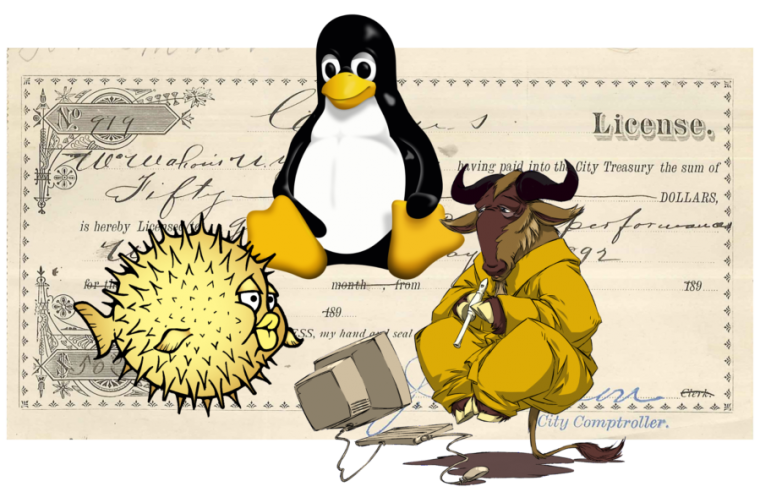Open source licenses: What, which, and why

Enlarge / Most open source projects are vastly more restrictive with their trademarks than their code. OpenBSD's Puffy, Linux's Tux, and the FSF's Meditating Gnu are among the few FOSS logos that can easily and legally be remixed and reused for simple illustrative purposes. (credit: OpenBSD, Free Software Foundation, Larry Ewing, Seattle Municipal Archives)
Most people have at least heard of open source software by now-and even have a fairly good idea of what it is. Its own luminaries argue incessantly about what to call it-with camps arguing for everything from Free to Libre to Open Source and every possible combination of the above-but the one thing every expert agrees on is that it's not open source (or whatever) if it doesn't have a clearly attributed license.
You can't just publicly dump a bunch of source code without a license and say "whatever-it's there, anybody can get it." Due to the way copyright law works in most of the world, freely available code without an explicitly declared license is copyright by the author, all rights reserved. This means it's just plain unsafe to use unlicensed code, published or not-there's nothing stopping the author from coming after you and suing for royalties if you start using it.
The only way to actually make your code open source and freely available is to attach a license to it. Preferably, you want a comment with the name and version of a well-known license in the header of every file and a full copy of the license available in the root folder of your project, named LICENSE or LICENSE.TXT. This, of course, raises the question of which license to use-and why?
Read 39 remaining paragraphs | Comments